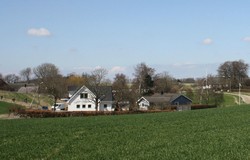New perspectives for understanding urban sprawl
Related research has focused almost exclusively on measuring and quantifying sprawl. The approach can be problematic, as it falsely assumes that sprawl is a universal concept and manifests itself in the same way across Europe and globally. This has led to standardised methods when considering the diversity of European landscapes. Such shortcomings have practical implications for planning, often preventing certain sustainable planning solutions. The EU-funded project SPRAWLESCAPES(opens in new window) (A comparative study of landscape discourses of urban sprawl in Sweden and Germany) explored the landscape discourses of urban sprawl in Germany and Sweden in order to facilitate a more nuanced and culturally based understanding. Project partners conducted a comparative analysis of landscape discourses in the two countries. They chronicled the introduction of the German concept ‘Zwischenstadt’ (in-between city) into Swedish planning research discourse. The neologism allows an unbiased look at the suburbanised reality of the landscape where people live now. The SPRAWLESCAPES team reviewed existing comparative approaches and assessed quantitative mapping approaches. It argued that such methods that try to map urban sprawl on a European level are problematic because they systematically fail to acknowledge the historically varied and culturally situated character of European urban development. They are also based on modernist ideas of progress, thus disregarding qualitative differences. Researchers developed a methodological framework enabling a critical discussion of mobile ideas in transnational planning discourse for urban sprawl. They claim it is vital to be aware of the paths along which concepts travel, the different settings at a concept’s origin, current or final destination, and the changes they undergo in getting there. The project proposed two ways to recover the critical content of travelling planning concepts. The first is to translate the concept’s context. Second, if the concept travels between language realms, deliberations around the literal translation can help to revive its critical content. SPRAWLESCAPES outcomes allow planners and researchers at national and EU levels to critically consider the import and use of concepts created elsewhere. They will be better positioned to tackle the highly complex and culture-dependent urban sprawl phenomenon.



